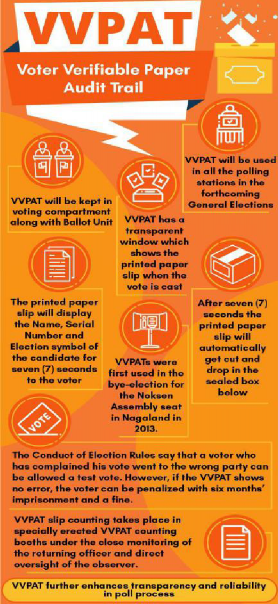Evolution of Voters’ Right to Know in India
2 May 2002: Association for Democratic Reforms v. Union of India; and People’s Union of Civil Liberties & Anr. v. Union of India & Anr. | The SC verdict established the filing of affidavits by candidates as the right of the voter. The SC held that the right to information – the right to know antecedents, including the criminal past, or assets of candidates – was a fundamental right under Article 19 (1) (a) of the Constitution and that the information was fundamental for survival of democracy. It directed the Election Commission to call for information on affidavit from each candidate seeking election to Parliament or the State Legislature as a necessary part of the nomination papers on: ♤ whether the candidate has been convicted / acquitted / discharged of any criminal offence in the past – if any, ♤ whether the candidate was accused in any pending case of any offenses punishable with imprisonment for two years or more, and in which charge was framed or cognizance taken by the court. |
13 March 2003 People’s Union for Civil Liberties v. Union of India | The SC ruled that voters have a fundamental right to know relevant information about candidates and Section 33B of RPA, 1951 stating that candidates could not be compelled to disclose any information about themselves other than their criminal records was unconstitutional. |
25 September 2018 Public Interest | The SC decided that it cannot disqualify candidates, against whom criminal charges have been framed, from contesting elections. |
Foundation v. Union of India | The Court recommended that Parliament make laws to curb the increasing criminalisation of politics. Further, the SC issued directives to the Election Commission, which in turn mandated the political party as well as candidate with criminal antecedents to publish information on website, newspapers and through television channels on three occasions during the campaign period, before the election. |
Various litigants filed contempt petitions against the EC for not | |
monitoring whether political parties were complying with the | |
13 February, 2020: Public Interest Foundation v. Union of India | directions issued in the 2018 Public Interest Foundation v. Union of India judgement. The Bench re-iterated the Court’s 2018 directions and directed the Election Commission to report to the Supreme Court any non- compliance by political parties. It also directed political parties to |
publish additional information like reasons for selecting a candidate | |
with pending criminal cases. |
6.5. Voter’s Right to Cast Negative Vote and Right to Secrecy

With a view to bringing about purity in elections, the Supreme Court, in PUCL v. Union of India, 2013 upheld the constitutional right of citizens to cast a negative vote in elections. PUCL had filed a writ petition under Article 32 challenging the constitutional validity of Rules 41(2) & (3) and 49-O of the Conduct of Election Rules, 1961 stating that these provisions violate the secrecy of voting which is fundamental to the free and fair elections and is required to be maintained as per Section 128 of the Representation of the Peoples Act, 1951 and Rules 39 and 49-M of the Rules.
The Supreme Court held that a voter could exercise the option of negative voting and reject all candidates as unworthy of being elected. The court directed the Election Commission to provide the NOTA button in the EVM.
The NOTA option may force political parties to nominate sound candidates. The bench noted that giving right to a voter not to vote for any candidate while protecting his right of secrecy is extremely important in a democracy. Such an option gives the voter the right to express his disapproval of the kind of candidates being put up by the parties. Gradually, there will be a systemic change and the parties will be forced to accept the will of the people and field candidates who are known for their integrity.
The right to cast a negative vote will foster the purity of the electoral process and also fulfill one of its objectives, namely, wide participation of people. Not allowing a person to cast a negative vote would defeat the very freedom of expression and the right to liberty.
The Bench held that Election Conduct Rules 41(2) and (3) and 49-O of the Rules were ultra vires Section 128 of the RPA and Article 19(1)(a) of the Constitution to the extent they violate secrecy of voting.
The two main key components that came out of the Supreme Court judgment are:
♤ Right to vote also includes a right not to vote i.e. right to reject. This means that a voter has every right not to opt for any of the candidates during an election i.e. the voter reserves the choice to remain neutral. This may happen when a voter feels that none of the candidate in a candidacy deserves to be elected. It happens by the way of his choice, belief, thinking and expression. The Right to reject originates from the freedom of speech and expression.
Right to secrecy is an integral part of a free and fair election. This right is central to an elector to cast his vote without fear of reprisal, duress or coercion as per Article 21 of the Indian

Constitution. Protection of elector’s identity and affording secrecy is therefore integral to free and fair elections. Any arbitrary distinction between the voter who casts his vote and the voter who does not cast his vote is violative of Article 14, Article 19(1)(a) and Article 21 of the Indian Constitution.
